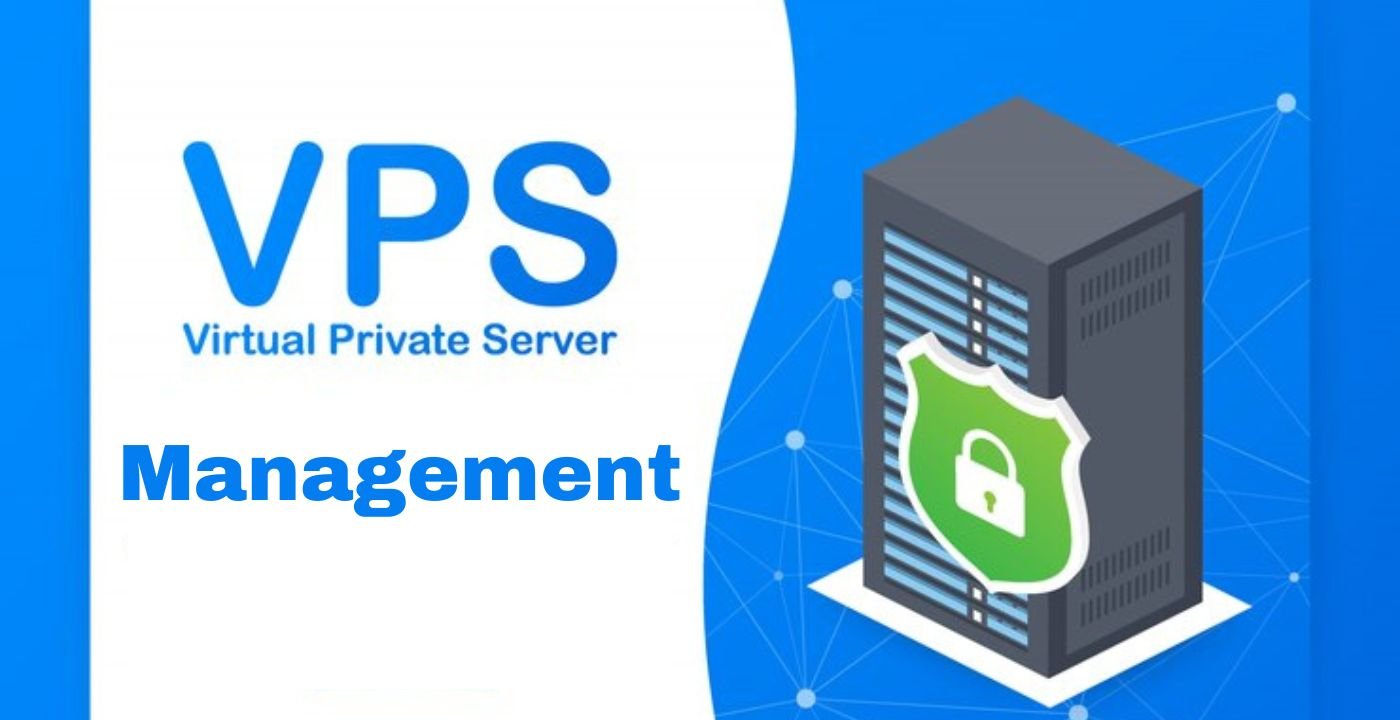VPS Management
The term “VPS management” refers to a range of procedures and methods used to maintain, enhance, and protect your virtual private server. Your VPS requires careful administration of server resources, software configurations, security protocols, and monitoring to ensure it performs at its best.
Firstly, let’s have a little look What is VPS ?
What is a VPS?
A centralized server called a virtual private server (VPS) runs inside a bigger physical server. While sharing the same physical hardware as other VPS instances, it gives customers specialized resources like CPU, RAM, and storage. This arrangement combines the advantages of both shared hosting and dedicated servers. Virtual Private Servers (VPS) have emerged as a popular choice for hosting websites, applications, and data due to their flexibility, scalability, and cost-effectiveness.
Benefits of Using a VPS
Enhanced Performance: VPS hosting performs better than shared hosting, resulting in quicker page loads and better responsiveness of websites.
Scalability: A VPS makes it simple to scale up or down resources as your website or application expands.
Customization: Users are able to set up their VPS environment in accordance with their individual needs.
Security: If we compare VPS to shared hosting, VPS hosting offers a better level of security, lowering the chance of data breaches.

How to Choose Right VPS
Effective VPS maintenance starts with choosing the right VPS plan. Budget, resource needs, and website traffic are a few things to think about. Make a smart choice because different hosting companies provide different plans with different resource allocations.
Operating System Installation
Once you’ve chosen your VPS plan, you’ll need to install an operating system (OS). Popular choices include Linux distributions like Ubuntu, CentOS, and Debian, as well as Windows Server for those who require a Windows-based environment.
Why Do We Need VPS Management
The smooth, secure, and effective operation of your Virtual Private Server is dependent on proper VPS maintenance. Without proper management, VPSs may experience performance problems, security threats, and a lack of adaptability for certain applications. Management involves handling tasks like resource optimization, software updates, regular backups, and security hardening. By actively managing your VPS, you not only safeguard your information and online presence but also make the most of the server’s capabilities, ensuring that it successfully meets your demands for hosting websites, running programs, or storing data.
How can we Manage VPS
VPS management requires a number of steps. First we have to pick a trustworthy hosting company, then a suitable VPS plan as we discussed above. Once your VPS has been set up, protect it by following these steps
VPS Management Software

VPS management software is a collection of tools and programs designed to make managing, maintaining, and improving virtual private servers easier. Both beginners wanting user-friendly interfaces and advanced users desiring greater control over their VPS environments will find great value in these solutions.
Key Features of VPS Management Software
Server Monitoring:
Monitoring your server’s performance, resource utilization, and uptime is made possible by extensive monitoring solutions. You can set up alerts to receive immediate notifications of any problems.
Resource Management:
Effectively allocate and manage server resources including CPU, RAM, and disk space. Software programs that scale resources automatically based on your demands are available.
Security Measures:
VPS management software frequently has firewalls and other built-in security features:
firewalls: To filter incoming and outgoing traffic.
regular security updates: Update your operating system and software frequently to avoid risks.
SSH Key Authentication: For safe remote access, disable password authentication and use SSH keys instead.
By doing this, you will protect your server from danger.
Popular VPS Management Software Options
cPanel:
Known for its friendly user interface, cPanel offers a variety of powerful tools for controlling servers, databases, and websites. For shared hosting situations, it’s a top option
Plesk:
Plesk is yet another user-friendly control panel designed with web developers and administrators in mind. It supports a wide variety of technologies and programming languages.
Virtualmin:
An open-source replacement that supports numerous virtualization technologies and has strong server administration tools.
Webmin:
Webmin is a free web-based system administration interface for Unix-based systems. It features a flexible layout and accepts a number of plugins for additional functionality.
Virtuozzo:
Virtuozzo specializes in virtualization using containers and provides a platform for management that is tailored for VPS hosting companies.
Your unique requirements, level of technical expertise, and financial constraints will all influence your choice of VPS administration software. Consider your alternatives.
Operating System Management
Directly from the software interface, you can quickly install, upgrade, and manage the operating system of your choice. This guarantees that your server is running up-to-date and safe OS.
Backup and Restore
Plan automated backups of your server’s settings and data. You can easily restore your VPS to a previous state in the event of unforeseen data loss or system issues.
Scalability
You may scale your server resources up or down using a number of VPS management tools as your website or application’s needs change. The ability to adapt is essential for managing traffic peaks.
User-Friendly Control Panel
Server management activities are made easier by a user-friendly control panel, making them accessible to people with different degrees of technical experience.
Managed vs Unmanaged VPS
There are two main types of Virtual Private Servers (VPS): managed and unmanaged. The following is a brief summary to help you decide which is best for you:
Managed VPS:
Convenience: Hosting a managed VPS is hassle-free. The hosting provider offers server maintenance, upgrades, and security.
Support: For non-technical users, the availability of professional support around-the-clock is vital.
Ideal for: Companies and individuals who want reliable, worry-free hosting yet prefer an impartial hosting environment.
Unmanaged VPS:
Control: Unmanaged VPS gives you complete control over your server. All server management responsibilities are under your purview.
Customization: It’s ideal for consumers with technological skills that desire total flexibility and personalization.
Ideal for: Skilled programmers, system administrators, or companies with specific technological needs and the knowledge to independently maintain a server.
Your decision between a managed and an unmanaged VPS largely dependent on your technical skill, your desired level of control, and your willingness to do server management duties.
Skills Required for VPS Management

Managing a Virtual Private Server (VPS) effectively requires a range of skills to ensure its smooth operation, security, and optimization.
FireWall Management
By establishing rules and filtration of incoming and outgoing traffic, firewall management serves as a powerful defensive mechanism, defending your VPS and the data it contains. In order to address new security issues and ensure that your VPS is secure and strong in the constantly changing digital environment, firewall policies must be regularly updated.
Hardening Your Server for VPS Management
hardening up your server applying strict safety precautions to reduce vulnerabilities and shield your system from potential threats. By maintaining firewalls, limiting user access, updating software, and monitoring for strange activities, you may create a strong barrier against cyberattacks.
Backup management
Another crucial element in ensuring data protection and continuity is backup management. Effective backup management requires establishing backup schedules, selecting safe storage alternatives, and examining the consistency and accessibility of backups. Quick data recovery will be possible as a result, with no impact on your VPS’s operations.
some other skills like command like skills, server security, web server configuration and others should opt for better management
Why do we do own VPS Management?
Any website or application owner’s primary priority is security. measures, including firewalls, intrusion detection systems, and regular security updates. You should have the ability to react quickly to emerging threats and vulnerabilities .When you manage your VPS, you have full control over the server’s configuration It allows you to gain a deeper understanding of server administration, which can be a valuable skill in the tech industry. .By taking charge of your VPS, you can save money and allocate your budget to other critical aspects of your website or application.
Conclusion
In conclusion, efficient VPS management is essential for a trustworthy and secure online presence. Setting up the server, putting in place security measures, and enhancing speed are just a few of the skills and methods needed. Whether you’re running a personal website, an online store, or an application host, effective VPS management delivers dependability, scalability, and security against potential attacks. It takes time to become knowledgeable, to adapt to change, and to safeguard your digital assets. The road to a reliable and seamless online experience is ultimately laid by professionally managed VPS hosting, which frees you up to focus on your content, services, or business goals.
FAQs
Shared hosting shares resources with multiple users, while VPS hosting provides dedicated resources and greater control.
Yes, most hosting providers allow you to upgrade or downgrade your VPS plan as needed.
Yes, VPS hosting is an excellent choice for e-commerce sites due to its performance and security benefits.
Basic technical knowledge is helpful, but many hosting providers offer managed VPS plans with technical support.
VPS hosting is generally more expensive than shared hosting but offers superior performance and customization options.





